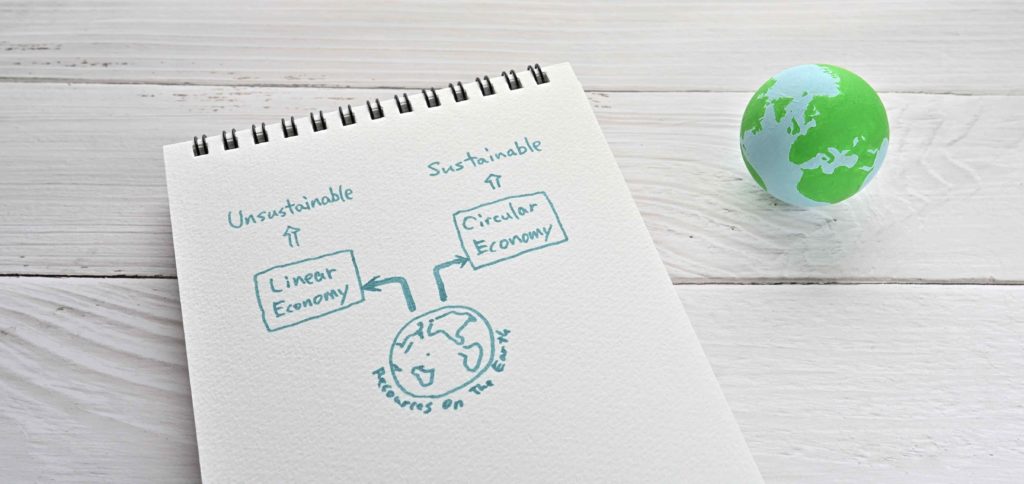The new year is fast approaching, and this is traditionally a time when we pledge to make changes in our lives for the better. It could be to eat more healthily, get into shape, give up a vice or generally just live in a more positive way. The new year seems like the perfect moment to make a clean break, to leave old bad habits in the past and start afresh. So, why should that just be in our personal lives? Surely this is also an ideal moment to make similarly positive moves for our businesses too.
Of course, the world of business is governed by a complex set of processes, regulations, and compliance – with an ever-changing number of rules to follow. But within this framework there is still plenty of scope to streamline processes, improve efficiency and, crucially, reduce waste.
Reducing waste is not just a nice idea from a conceptual point of view. It can have a very positive impact on your business in a number of ways, including:
-
- Saving money
- Enhancing sustainability
- Reducing emissions
- Conserving resources
- Encouraging best practice
- Improving health and wellbeing of employees
Below you will find 7 new year’s resolutions to reduce waste at your business, helping you to make your business leaner, stronger, and better able to maximize profits in the long term.
Reduce consumption
The three Rs form an integral part of any effective waste management strategy: reduce, recycle, and reuse. Perhaps the most important of these is reduce. If you can use fewer materials in your workplace on a day-to-day basis, then you can vastly cut back on how much waste you produce. If possible, try and become paper free or think about any paper use that is necessary and try to cut back. US offices use about 12.1 trillion sheets of paper every year, and up to 50% of all logging is carried out to produce paper, so we all need to try and use less.
In addition, think about plastic usage, especially single use items such as drinking cups or water bottles. You should also think about excess energy consumption, such as leaving office lights and equipment switched on overnight. 17% of all the energy required in your business is used to power lighting, which can be easily and effectively reduced.
Choose eco-friendly suppliers
Just as your customers are right to expect you to make every effort possible to be as sustainable as possible, you should expect nothing less from your suppliers or business partners. Try and work with suppliers that align with your own waste principles, and who can demonstrate their credentials when required. Reducing waste effectively requires thinking about every stage of the process, not just your own link in the chain.
Donate equipment
Business equipment breaks down, becomes obsolete or outdated, or simply needs an upgrade to help you remain efficient. But sending old equipment to landfill is a surefire way to hugely increase your waste footprint. However, there are initiatives you can use to prolong the life of office equipment through donation or recycling. It doesn’t have to just be IT equipment either, office furniture or other business tools can generally be found a new home.
Waste separation
One of the big barriers to effective waste management and recycling is poor separation. It might seem time consuming to separate waste on site, but effective identification streams can be easily set up and compliant methods of handling and dealing with waste can help to reduce the chances of contamination that prevents recycling. This is particularly true with hazardous waste compliance, where any kind of mixing can render an entire batch of waste as contaminated and unsuitable for treatment.
Suitable waste containers
In order to improve waste separation and encourage good waste practice, set up color coded waste disposal or recycling containers to separate waste streams and allow for easy collection. This simple solution is easy to enforce, helps with compliance, and can help you to think more clearly about the kinds and amounts of waste you are generating.
Self-audit
Of course, it’s not just enough to have good intentions (as we know from our personal lives). Making positive changes requires dedication and occasionally some hard work, and the only way to ensure that these changes are having the desired positive effect is to self-audit your working practices. A waste audit can ensure that you are meeting your waste minimizing goals and meeting any compliance targets. They can also help you to assess quantities and identify any further opportunities for minimizing waste.
Education and training
In order to maximize your waste reduction potential, you need to make sure that all your staff understand the importance of waste reduction and compliance, and are trained in best practice. To be successful, waste management programs rely on the buy in from staff, and this in turn depends on effective training and communication. Try and make training an ongoing process, as messages can quickly become diluted after a one-off training session. Try and encourage or incentivize staff to develop new ideas and strategies for cutting down on waste, with regular short meetings to discuss new ideas.
If you would like more help developing new year’s resolutions to reduce waste at your business, then get in touch with our expert team at RTS. We can help you to deal with waste in a much more sustainable and cost-effective way, helping you develop effective waste strategies for the new year and far beyond.

